108 Glen Osmond Road, Parkside
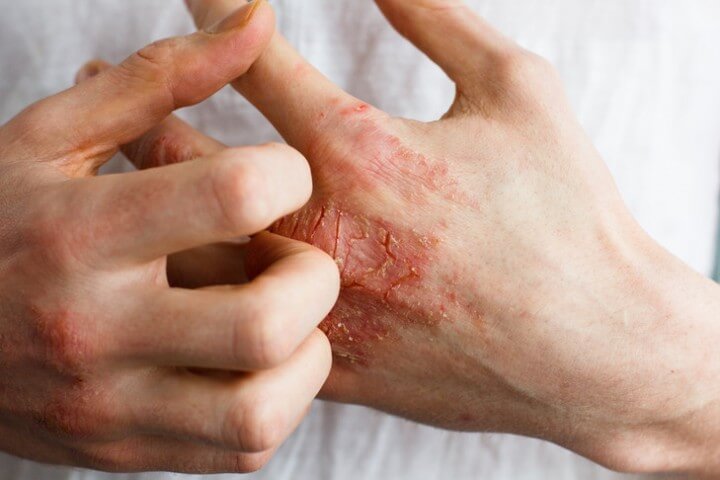
Eczema, also known as Dermatitis, is a non-infectious inflammation of the skin. It is characterized by itchiness, red skin, and a rash. In cases of short duration, there may be small blisters, while in long-term cases the skin may become thickened. The area of skin involved can vary from small to the entire body. Atopic eczema is the most common form of the disease among Australians. It affects one in three Australians at some stage throughout their lives. It is most common in people with a family history of an atopic disorder, including asthma or hay fever.

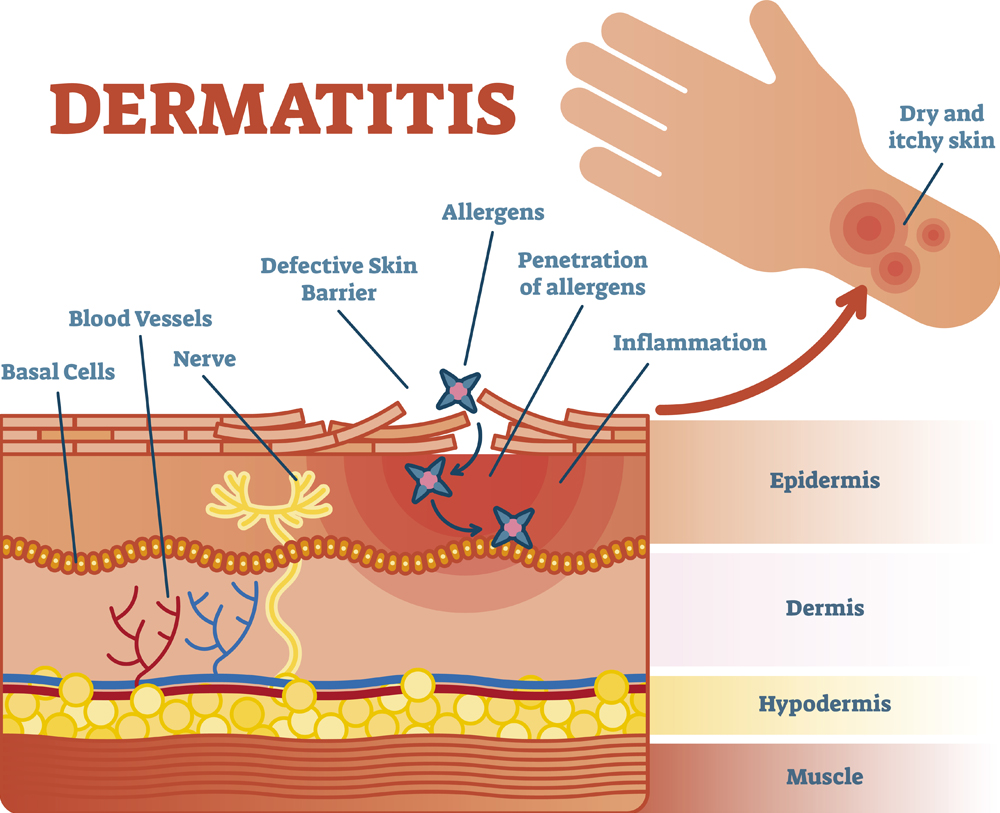

TYPES OF ECZEMA -
The three main types of eczema are atopic dermatitis, contact dermatitis, and nummular eczema. Several other skin conditions can be related to eczema which also causes itchy and dry skin.
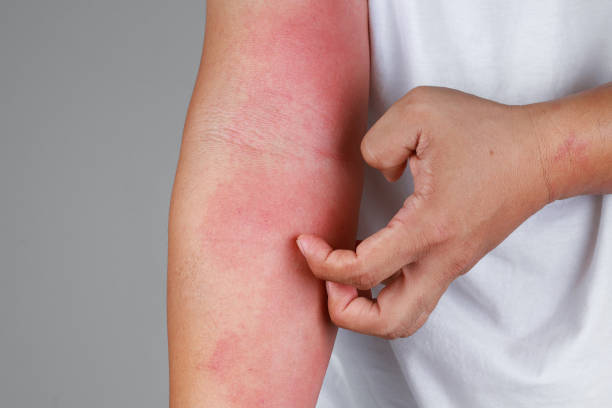
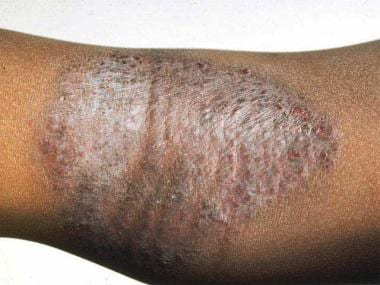

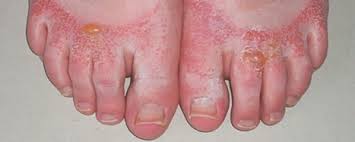
The Ayurvedic concept of Eczema or Dermatitis:
Eczema or Dermatitis is correlated with Vicharchika in Ayurveda. It is a spreading type of skin eruption with itching. According to ancient Ayurvedic textbooks, in this condition ,the skin has red rashes, with bumps, associated with profuse discharge, intense itching, and often blue discoloration.
Some others also notify painful, dry, and mild to moderate itching lesions.
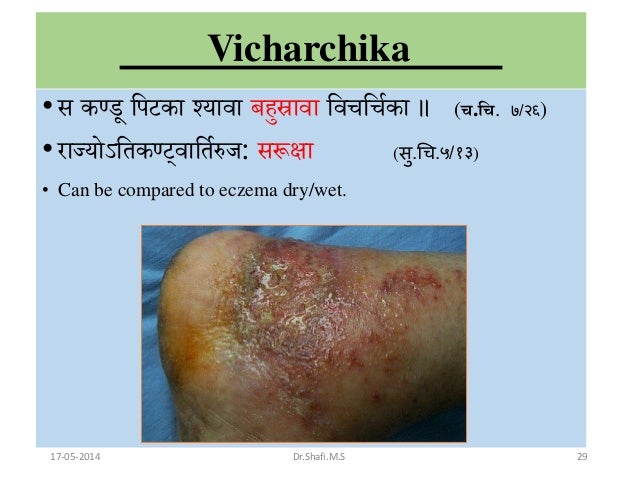
Types explained in Ayurveda :
According to Ayurveda, vicharchika (eczema/dermatitis) is related to the vitiation of any of the three doshas affecting the skin and blood as well as accumulated metabolic wastes. In general, the main dosha involved is pitta or kapha, but all three can be involved. Below is a general description of how doshas influence the characteristics of this disease.

Causes as per Ayurveda:
These are classified into the following 3 group
Foods that cause skin diseases:
Habits that cause skin diseases:
Mental activities that cause skin disease:
Treatment of Eczema in Ayurveda:
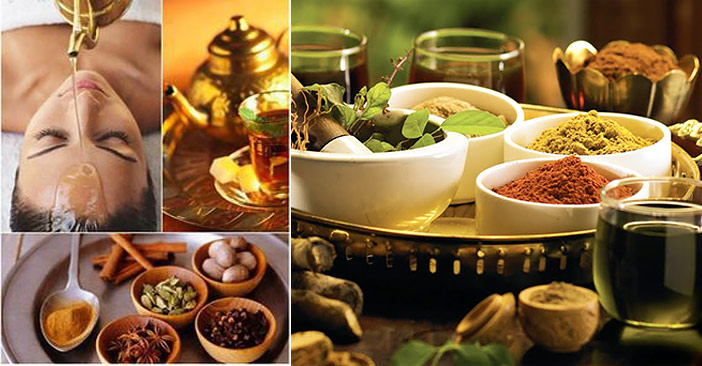
Eczema Ayurvedic treatment includes several types of therapies including body detox with Panchkarma, application of herbal pastes/oils, and administration of oral herbal formulations. Overall Ayurvedic treatment for eczema focuses on clearing the skin lesions as well as reducing the body toxins that could be responsible for inflammation in the body. In infants with eczema deep cleansing is not indicated and the treatment is usually given through the mother, especially in the case of a breastfeeding baby. A daily teaspoon of Aloe vera juice mixed with any liquid and given to the infant can do wonders to relieve the symptoms and rejuvenate the skin. If the condition persists after 3 years of age, internal herbs may be given.
Ayurveda offers many traditional and custom formulations that are specific to the various forms of these conditions, but these can only be selected once a full evaluation is made by an Ayurvedic practitioner. Below is a general list of some of the most commonly used herbs to treat eczema and related skin conditions:
Liquorice (Glycyrrhiza glabra) – It contains a compound called glycyrrhizin, which has been shown to have anti-inflammatory activity that benefits redness, swelling, and itching in eczema. Liquorice has been considered an effective herb for the treatment of eczema for many centuries.
Neem (Azadirachta Indica)- Neem is a bitter, astringent herb that is cooling and highly antibacterial. It is one of the top home remedies for eczema in Ayurveda as it clears away toxins in the blood and liver. One can use neem oil to massage over affected areas to relieve eczema symptoms and aid skin regeneration.
Tea Tree oil- People often use this oil to help with skin problems, including eczema. It has anti-inflammatory, antibacterial, and wound-healing properties in the oil. It may help relieve skin dryness and itching and help prevent infections.
Dandelion (Taraxacum officinale)– Dandelion juice can stimulate the liver and help clean up dyshidrotic eczema (the kind that causes tiny bubble-like blisters paired with intense itching). However, applying dandelion externally can also help with eczema. Dandelion sap, otherwise known as dandelion milk, is used in treating skin diseases caused by microbial or fungal infections. Its flowers are a fantastic natural source of lecithin, which is a moisturizing nutrient often used in skincare. Dandelion root contains a number of different compounds including inulin which, as we saw with burdock, draws moisture up to the skin.
Coconut oil- Coconut oil is ideal for dryness. It also has antibacterial properties, which may prevent harmful, infection-causing bacteria from entering cracked skin.
Milk thistle (Silybum marianum)– This herb is named milk thistle because of the milky sap it contains which is demulcent, meaning that it creates a gel-like layer, trapping moisture and soothing the skin. Milk thistle contains a compound called silymarin which improves skin redness, itching, hydration, and skin color. Plenty of anecdotal evidence suggests that milk thistle alleviates the symptoms of eczema.
Shatavari (Asparagus racemosus)- Shatavari root when infused in oil is a natural cure for eczema. Shatavari is a cooling herb that calms Pitta and is a great help for the digestive system.
Honey- Honey is a natural antibacterial and anti-inflammatory agent, and people have used it to heal wounds for centuries. Honey can help heal wounds and boost immune system function, meaning it can help the body fight off infections. With direct application on eczema-affected skin, honey could help prevent infections while moisturizing the skin and speeding healing.
Calendula (Calendula officinalis) – Calendula is believed to benefit eczema by reducing inflammation, eliminating bacteria, and helping the skin heal.
Turmeric- Turmeric contains a key ingredient called curcumin. Various studies have found curcumin to have antioxidant, antibacterial, antifungal, and anti-inflammatory properties, which may help protect sensitive skin. It may also affect the immune system cells that are in part responsible for eczema. Many topical products containing curcumin — such as ointments, soaps, and cosmetics — are sold throughout the world.
Aloe vera- Aloe vera is used to treat a wide range of skin disorders because it is soothing, moisturizing, and cooling to the skin. Uses include treating minor burns (including sunburn), minor skin irritations, acne, insect bites, abrasions, skin aging, eczema (including napkin dermatitis), and psoriasis.
Bakuchi (P. corylifolia)- The plant has blood purifying properties. It is used to treat itching red papules, itching eruptions, extensive eczema with thickened dermis, ringworm, rough and discolored dermatosis, dermatosis with fissures, and scabies. P. corylifolia is a very ancient remedy for leucoderma. it is used in the inflammatory diseases, mucomembranous disorders, dermatitis, and edematous conditions of the skin. It also alleviates boils and skin eruptions.
General recommendations for eczema types of skin conditions :
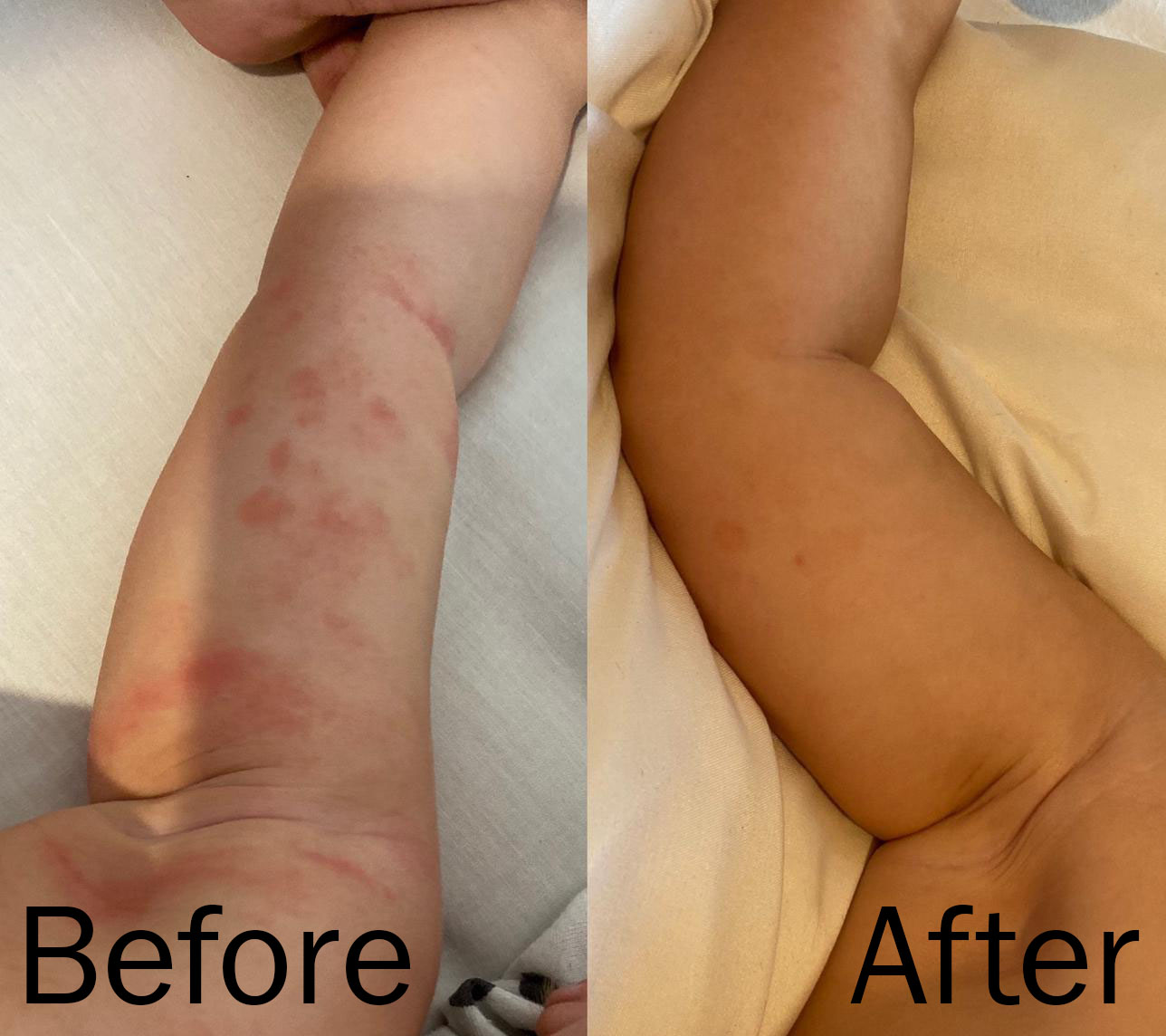
To treat eczema and other skin diseases, it is essential to have the guidance of a skilled practitioner who can tailor an herbal and dietary program specific to your individual needs. Contact expert Ayurvedic doctors at Life Line Ayurvedic Herbal Clinic to get the best Ayurvedic Natural treatments for eczema in Australia.
Disclaimer : Sandeep Kumar and Anupam Vasudeva are not GP, they have Ayurveda medical degree from India where it is considered equal to any other medical degree. This qualification is recognized in Australia by vetassess governing body as Complementary Health Therapists. Life Line Ayurvedic Herbal Clinic does not claim to cure a disease or terminal illness and does not create any unreasonable expectation of beneficial treatment. Ayurvedic medicines and treatments are generally considered to be safe but rarely may be associated with possible adverse reactions in individual cases. We recommend seeking urgent medical attention in the case of an adverse reaction. This website provides you with information. You must contact your Ayurvedic or another health professional before you apply them. Read More